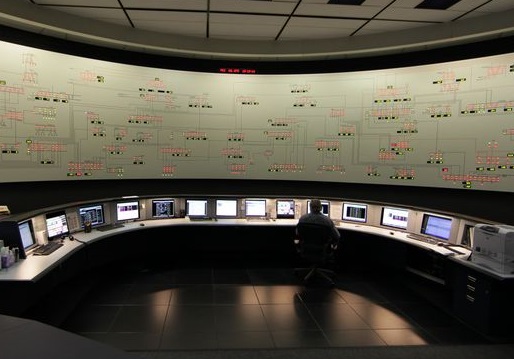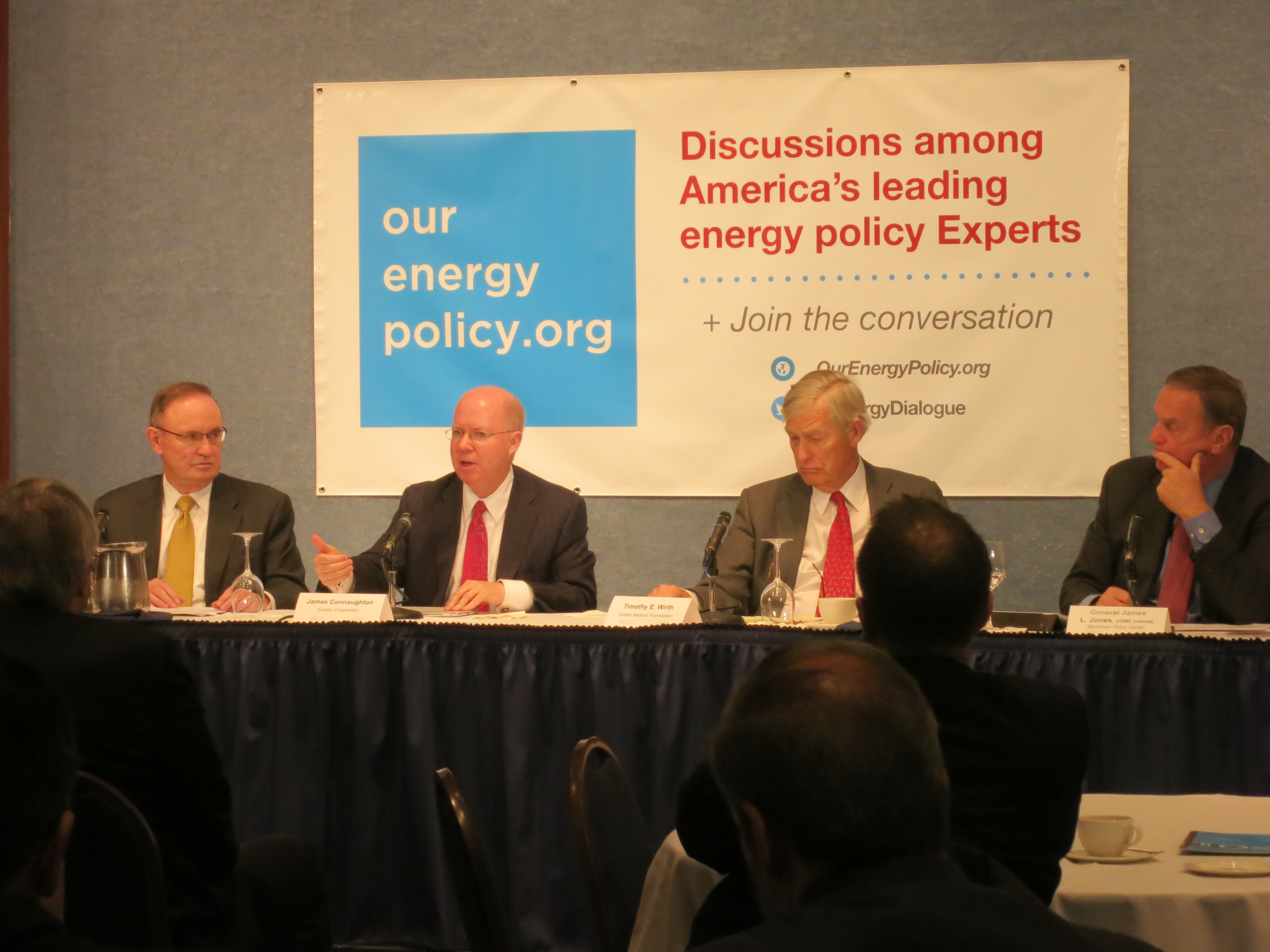56 item(s) were returned.
Professor of Physics
University of Califoria at Berkeley
Some oppose shale gas because it is a fossil fuel, a source of carbon dioxide. Some are concerned by accounts of the fresh water it needs, by flaming faucets, by leaked “fugitive methane”, by pollution of the ground with fracking fluid and by damaging earthquakes. Although I believe that global warming is real, caused by humans, and a threat to our future, these concerns about shale gas are either largely false or can be addressed by appropriate regulation such as the controversial but ultimately positive developments in Illinois. Shale gas can not only reduce greenhouse gas emissions, but also reduce a deadly pollution known… [more]
View InsightSenior Regulatory Attorney
Environmental Defense Fund
Two seemingly unrelated announcements drew much attention in the electric utility industry recently. First, the Edison Electric Institute and the Natural Resources Defense Council jointly recommended changing how utilities should be regulated. Second, Duke Energy announced it will sell 13 Midwest merchant power plants. These announcements are actually related, and arise because the traditional utility business model is crumbling, due to several factors: Load growth has declined, due to a slowing economy and greater use of renewable energy and energy efficiency. Utilities are no longer able to obtain economies of scale by building ever-larger plants. New regulations have resulted in… [more]
View InsightMember
U.S. House of Representatives
Earlier this week, H.R. 3826, the “Electricity Security and Affordability Act,” which I co-authored with Senator Joe Manchin (D-WV), advanced through the House Energy and Power Subcommittee, by a vote of 18 to 11. This bipartisan, bicameral legislation provides a reasonable alternative to EPA’s proposed greenhouse gas standards for new power plants and the agency’s planned regulations for existing power plants. It now moves to the full Energy and Commerce Committee for consideration. Under EPA’s proposal, industry would not even be able to build the most state-of-the-art clean coal-fired power plant, because the technology required under the proposed regulation is… [more]
View InsightThe U.S. Environmental Protection Agency (EPA) released draft rules on September 20th, to limit carbon emissions from new coal power plants. The proposed rules are part of President Obama’s broader Climate Action Plan aimed at combating climate change and improving public health, according to the EPA. Under the rules, new coal-fired power plants would be limited to 1,100 pounds of CO2 per megawatt-hour, or could opt to meet stricter average emissions limits that grant additional operational flexibility. The rules also would require new plants to implement partial carbon capture and storage (CCS) technology. Critics of the proposed rules argue that… [more]
View InsightExecutive Director
The Solar Foundation
There is an investment vehicle available to oil and natural gas development that is not available to renewable energy resource projects. There is a current effort in Congress to change that situation. Most political leaders today claim they support an “all of the above” energy strategy. Yet solar and other renewable energy resources are currently restricted by the lack of access to master limited partnerships (MLPs). MLPs are business structures that are taxed as a partnership, but whose ownership interests are traded like corporate stock on a market. MLPs have the advantage of avoiding double taxation. Projects done through MLPs… [more]
View InsightProfessor of Public Policy
Georgia Institute of Technology
Thanks to breakthroughs in seismic imaging, horizontal drilling and hydraulic fracturing, the US in 2012 reduced its reliance on much dirtier coal by shifting to gas-fired power plants. This trend is expected to continue, spurred by low gas prices and increased regulation on coal. The move to shale gas is being heralded as a key to economic prosperity and a clean energy future. But there are other options for displacing baseload electricity from retired coal plants, the principals being nuclear, renewables and energy efficiency. Will the gas bonanza enable or postpone the transition to these cleaner options? While natural gas… [more]
View InsightDistinguished Professor of Energy
University of California, Berkeley
If Peabody Energy, SSA Marine and Goldman Sachs really want to stimulate jobs in Washington State, as they claim in their support of the Gateway Pacific project, they can find much better ways to do so than building the sprawling $665 million coal terminal northwest of Bellingham, WA. They could use the money instead to fund energy-efficiency and renewable-energy projects, which per dollar invested, would create twice as many jobs at minimum. Modern coal terminals are highly mechanized facilities, and few workers are needed to operate them. As estimated in official project documents, the Gateway Pacific Terminal would support only… [more]
View InsightUpdate: See a video recording of the event here OurEneryPolicy.org’s high-level panel discussion, moderated by Chief National Correspondent for the Fox News Channel Jim Angle, and featuring James Connaughton, General James L. Jones, and Timothy Wirth, had an overall tone of optimism for energy policy for next four years and beyond. Here are some event highlights: The panelists saw hydraulic fracturing as presenting an economic, energy security, and emissions reduction opportunity, but agreed that smaller “mom and pop” operations engaging in substandard industry practices could turn public opinion against fracking. However, there is an opportunity for industry leaders, such as… [more]
View InsightBoth the Democratic and Republican parties have released their platforms, each offering a vision of the American energy landscape in the coming years. Both parties promote distinct visions of an “all-of-the-above” approach to energy. The end goal for both parties is U.S. energy independence, with the GOP’s vision seeming to rely primarily on the development of America’s fossil fuel resources and a business-friendly regulatory regime, while the Democrats’ platform promotes a “move towards a sustainable energy-independent future” that would allocate resources between fossil fuel and renewables development, alongside to a variety of “green” initiatives. GOP Democrats Fossil Fuels Supports “new, state-of-the-art coal-fired… [more]
View InsightIn a column for the New York Times titled “There’s Still Hope for the Planet,” columnist David Leonhardt describes why investments in technology – particularly governmental investments in clean tech research and development – may be the best bet for reducing CO2 emissions, and may provide a small basis for optimism to those interested in fighting climate change. Leonhardt argues that renewable energy, which is becoming increasingly cost-competitive with traditional fossil fuels, and the emergence of natural gas as a replacement for coal, make putting a price on CO2 emissions less attractive than investment programs. “Carbon pricing is going to… [more]
View Insight






